Filter by
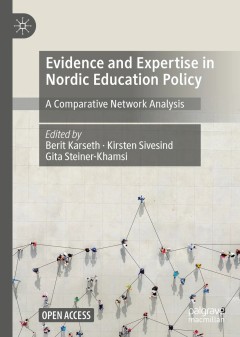
Evidence and Expertise in Nordic Education Policy : a comparative network ana…
This open access book explores how policy makers draw on national, regional and international expertise in issuing school reform within five Nordic countries. In an era of international comparison, policy makers are expected to review best practices, learn from experiences from elsewhere, and apply international standards propelled by international organizations. Do they do so? What counts, fo…
- Edition
- -
- ISBN/ISSN
- 9783030919597
- Collation
- xxiv, 249p. : ill.
- Series Title
- -
- Call Number
- 379.48 EVI e
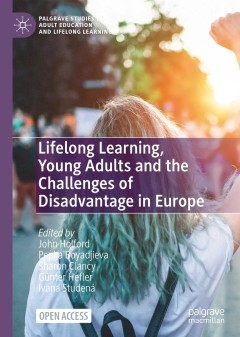
Lifelong Learning, Young Adults and the Challenges of Disadvantage in Europe
This open access book challenges international policy ‘groupthink’ about lifelong learning. Adult learning – too long a servant of business competitiveness – should be reimagined as central to democratic society. Young adults, especially from disadvantaged backgrounds, engage more in education and training, and learn more day-to-day at work, if provision is democratically organised and …
- Edition
- -
- ISBN/ISSN
- 9783031141096
- Collation
- xxxviii, 467p. : ill.
- Series Title
- -
- Call Number
- 374 LIF l
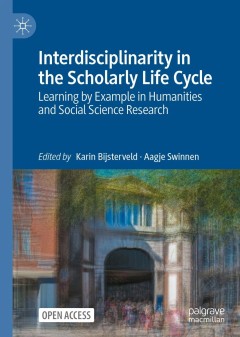
Interdisciplinarity in the Scholarly Life Cycle : learning by example in huma…
This open access book illustrates how interdisciplinary research develops over the lifetime of a scholar: not in a single project, but as an attitude that trickles down, or spirals up, into research. This book presents how interdisciplinary work has inspired shifts in how the contributors read, value concepts, critically combine methods, cope with knowledge hierarchies, write in style, and coll…
- Edition
- 1
- ISBN/ISSN
- 9783031111082
- Collation
- xvi, 337p. : ill.
- Series Title
- -
- Call Number
- 820.90001 INT i
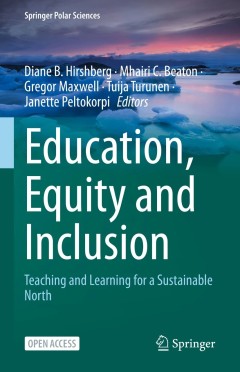
Education, Equity and Inclusion : teaching and learning for a sustainable north
This open access book provides a current view on education, equity and inclusion within the lens of education for a sustainable North. The first book published by the University of the Arctic Thematic Network for Teacher Education for Social Justice and Diversity (Including the North: A comparative study of the policies on inclusion and equity in the circumpolar North, 2019) highlighted policie…
- Edition
- 1
- ISBN/ISSN
- 9783030974602
- Collation
- viii, 260p. : ill.
- Series Title
- -
- Call Number
- 371.207 EDU e
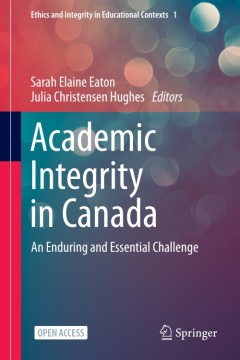
Academic integrity in Canada : an enduring and essential challenge
This open access book presents original contributions and thought leadership on academic integrity from a variety of Canadian scholars. It showcases how our understanding and support for academic integrity have progressed, while pointing out areas urgently requiring more attention. Firmly grounded in the scholarly literature globally, it engages with the experience of local practicioners. It…
- Edition
- -
- ISBN/ISSN
- 9783030832551
- Collation
- xxv, 599p. : ill.
- Series Title
- -
- Call Number
- 378 ACA a
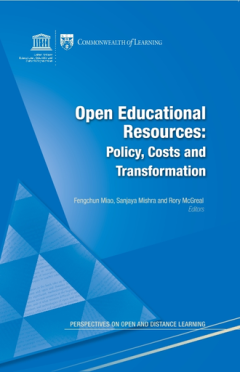
Open Educational Resources: Policy, Costs and Transformation
The Open Educational Resources (OER) movement has grown substantially since the term was first adopted at UNESCO’s 2002 Forum on the Impact of Open Courseware for Higher Education in Developing Countries (UNESCO, 2002). Since then, there has been a significant increase in the development, use and sharing of OER as more and more governments and institutions come to realise their value. OER can…
- Edition
- -
- ISBN/ISSN
- -
- Collation
- xv, 231p : ill.
- Series Title
- -
- Call Number
- 681.14 OPE
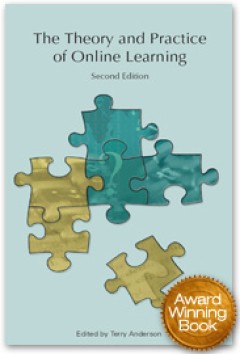
The theory and practice of online learning
Every chapter in the widely distributed first edition has been updated, and four new chapters on current issues such as connectivism and social software innovations have been added. Essays by practitioners and scholars active in the complex, diverse, and rapidly evolving field of distance education blend scholarship and research; practical attention to the details of teaching and learning; and …
- Edition
- -
- ISBN/ISSN
- 9781897425077
- Collation
- 472 p.
- Series Title
- -
- Call Number
- 371.334 THE t
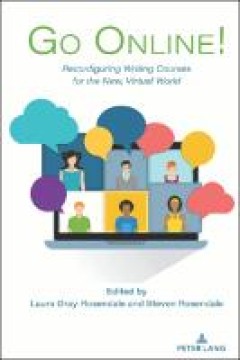
Go online! : reconfiguring writing courses for the new, virtual world
COVID-19’s impacts revealed that teaching writing online was no longer merely an issue of convenience or economic necessity—it was critical to public health and equity concerns as well. Now higher education faces one of its greatest historical challenges, expanding online offerings to fully engage and support students around the world. Gathering together educators who teach writing at colle…
- Edition
- -
- ISBN/ISSN
- 9781433187971
- Collation
- ix, 226p ; ill.
- Series Title
- -
- Call Number
- 808.0420785 GRA g
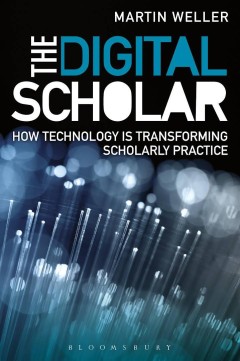
The Digital Scholar : How Technology is Transforming Scholarly Practice
While industries such as music, newspapers, film and publishing have seen radical changes in their business models and practices as a direct result of new technologies, higher education has so far resisted the wholesale changes we have seen elsewhere. However, a gradual and fundamental shift in the practice of academics is taking place. Every aspect of scholarly practice is seeing changes effec…
- Edition
- -
- ISBN/ISSN
- 9781849666268
- Collation
- viii, 200p.
- Series Title
- -
- Call Number
- 371.344 WEL d
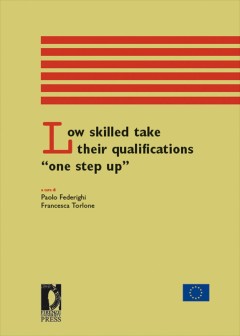
Low Skilled Take Their Qualifications "One Step Up"
Adult learning is recognized as a key component of lifelong learning and Member States are required to remove barriers to participation, to increase overall quality and efficiency in adult learning, to speed up the process of validation and recognition and to ensure sufficient investment in and monitoring of the field (European Commission, 2006, 2007; European Parliament, 2008; European Council…
- Edition
- -
- ISBN/ISSN
- 9788864531793
- Collation
- x, 109p : ill.
- Series Title
- -
- Call Number
- 374 LOW l
 Computer Science, Information & General Works
Computer Science, Information & General Works  Philosophy & Psychology
Philosophy & Psychology  Religion
Religion  Social Sciences
Social Sciences  Language
Language  Pure Science
Pure Science  Applied Sciences
Applied Sciences  Art & Recreation
Art & Recreation  Literature
Literature  History & Geography
History & Geography